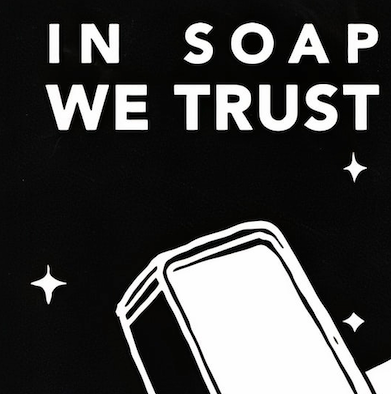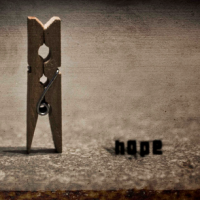Gratitude
africa, beauty, despair, hope, poverty
I was going to write about marketing today, but I found something more important: today is Blog Action Day, where at least 9,000 bloggers are writing about poverty. Here’s my contribution to that, and we’ll talk more about marketing next week.
***
Hope and Despair
A lot of people have asked me to write more about Africa, and I feel somewhat conflicted about it. I’ve been waiting for a while in part because I’m not sure where to start, and in part because I want to avoid all the clichés and generalizations we tend to slip into when considering such a big subject.
The Blog Action Day inspired me to go ahead and get started with the process, and I know that some of you won’t hesitate to let me know if you think I’m on the wrong track.
A few years back, when I first started thinking seriously about writing (this came before the actual writing, ironically), I assumed I’d end up writing mostly about Africa. I figured I’d write a series of essays on my views of international development and a memoir of my time on the continent.
I even had a great name for it. Are you ready? Here it is:
Hope and Despair: Four Years in the Poorest Countries of Africa
Isn’t that great? Well… not really. The problem, as I found out the more I read, was that almost everyone who writes about poverty in Africa ends up using a similar theme.
This is because when it comes to the status of poverty in Africa, there is a lot to be hopeful about, and a lot to be sad about.
It’s fashionable these days to present positive images of Africa, which is good since a lot of people still picture famine, war, and desperate poverty when they think about the continent. That is not the only Africa, and I’m glad to read about a detective agency in Botswana, for example, where life is simple but good.
The problem, of course, is that many Africans still live in the desperate poverty we don’t see from the positive images. Many of them are still threatened by war or other violent conflict – in Somalia, Sudan, Central African Republic, the D.R. Congo, Angola, Guinea-Bissau – just to name the places that come to mind right away.
To avoid this fact seems to be untruthful. If some people are suffering and you talk only about how happy some other people are, you’re only giving one side of the story. I’ve been to too many refugee camps, usually with thousands of people living in tight spaces and depending on handouts from the U.N., to do that.
Sierra Leone was the first African country I visited, which was (and still is) ranked #177 out of 177 countries on the U.N. Human Development Index. In other words, you could credibly say it was the poorest country in the world.
It was a country of joy and sorrow, and thus we come to the clichéd dichotomy that is hard to escape. When I think about Africa, I can’t forget either one.
The Campaign to End Sell Poverty
In addition to one-sided hopeful stories, I’m also troubled by the marketing of poverty on the other end. While I do think it’s good that caring about what happens in Africa is now fairly mainstream, I find it jarring that images of poor people are regularly used to induce guilt and solicit money – in which case, the donor’s guilt is relieved until the next war or natural disaster.
I realize it’s probably for the better that people in the West are now actually paying attention to what happens in the rest of the world. Surely it’s better than not caring, which has been the norm for decades. But still, I think “cause marketing” has a long way to go, and I suspect that a few years from now we’ll look back and realize how pathetic some of it was.
A couple of years ago, it was fashionable around the University of Washington to wear Stop Genocide in Darfur t-shirts and bracelets. I confess to feeling somewhat cynical about that – although let the record be shown that I never tried to discourage anyone from being informed, because that would be evil.
But the heart of my cynicism, truth be told, came from the indisputable fact that wearing clothing with a nice slogan does not really help anyone. If a bracelet can prevent people from being killed and removed from their homes, I remember thinking at the time, will I help twice as many people if I wear one on each arm?
I believe the Generation X prophet known as John Mayer put it best in his song Belief:
Is there anyone who
Ever remembers
Changing their mind from
The paint on a sign
Is there anyone who
Really recalls
Ever breaking rank at all
For something someone yelled real loud one time
Unfortunately, that’s not how genocide in Sudan will be stopped. Neither will shopping at the Gap or having a red iPod instead of a white one introduce a cure for AIDS.
Sorry, again. But because hope co-exists with despair, there is usually some good news along with the bad.
The goal of any good anti-poverty campaign, as I understand it, is to help people become rich enough to choose for themselves.
Hope relates to the ability to make your own choices. When you can make choices about healthcare and nutrition, you have more freedom. When you can make choices about the kind of employment you pursue and what kind of education your children get, you have even more freedom.
Despair is related to the lack of choices, and thus the lack of freedom. When poverty prevents you from choosing much of anything, it’s hard to be hopeful.
Food aid sent to Zimbabwe from Nebraska does not help increase wealth or opportunities for Africans to choose for themselves. Governmental aid in general, for the most part, doesn’t usually help either – at least it hasn’t for the last 40 years.
The best solutions usually come down to helping people create the opportunities to make their own choices. There are a variety of ways to do this – eradicating malaria so that children and elders don’t die from a mosquito bite, bringing clean water to villages, helping women become entrepreneurs and thus more independent, and so on.
The Action Plan (What We Can Do)
It’s not fair to tell you what I think is wrong with our understanding of poverty without telling you what I think can be done to help.
Here’s a few ideas:
Give freely of your time, not just your money. Yes, you can do something more than write a check. Really. There are local charities that need board members to serve and people to help host events. There are immigrant populations, and often resettled refugees or asylum seekers, in most major Western cities. These groups usually need help with all kinds of things, from grocery shopping to English lessons.
I believe that everyone should take the time to discover what they can give that no one else can. This sometimes takes a while, and it can be a process with a lot of false starts, but in the end, it’s worth it for everyone. And in the beginning, it’s OK to just start helping wherever you can. If you’re brave enough to start helping anywhere, you’ll probably figure out what you’re best at before long.
Create a strategy for financial giving instead of using the shotgun approach. In North American and European culture, it’s considered modest to underestimate your wealth. But don’t underestimate too much. If you’re reading this, the chances are you are incredibly rich. Seriously.
Where much is given, much more is required. After spending so much time in Africa, I could lose everything I had and I would never think of myself as poor. I’m not saying it would be fun; I just mean that I’m well aware of my privileged status in life. I don't always give as much as I should, but I'm trying to help as much as I can.
When in doubt, give anyway. Naturally, you should be careful about who you give your money to, but being too careful isn’t good either. One time Jolie and I met a couple on the bus ride from North Seattle to our apartment in Wallingford. The guy kept looking at us, and I decided to be a nice city-dweller for once and say hello.
He told me a story about how he and his wife were down and out, trying to find work, so on and so forth, but all he needed now was $15 to get transportation somewhere.
I’d heard similar stories many times over, and I wasn’t convinced. Jolie had a good vibe about them, though, so we went with her judgment and helped them a little. And as she put it later, what if we were wrong? We could afford the cash, which was less than we had just spent on dinner an hour earlier.
In the worst case scenario, we were wrong, they had lied to us, and we were out $15. It’s not that bad. What would really be bad is if they were telling the truth and we had refused to help when we were able.
Emergency relief efforts are important, but they rarely help with long-term development. A little-known secret of international development is that most emergencies are greatly overfunded, but most ongoing development projects are not.
I ask CARE, World Vision, and the other organizations I support to not send me “appeal” mailings. These are the emergency requests that arrive right after any major world disaster. They are effective because people tend to respond better to an urgent crisis than to something that will help people improve their lives for long in the future.
In reality, the best charities are focused not only on disaster response (which is often well-funded by governments) but also on long-term projects of 15 years or more that will truly help families and communities have more choices.
I like the model of CARE, which has made a number of courageous decisions to back away from accepting government funding that is tied to questionable practices. If you're looking for an organization to support, they do good work in 69 countries.
I will probably remain hopeful about some aspects of world poverty and not hopeful about others.
I wish it could be simplified further, but I don’t know how to do so. I'll keep trying to think through it, and I hope you'll do the same from your side over there. Regardless, I hope you'll agree that poverty is too pressing of a problem to ignore.
Today is a day where many of us are thinking about it, but I hope it won't be forgotten after the day is over.
###
More Reading:
-
For an older (but still stimulating) perspective, check out E.F. Schumaker’s Small Is Beautiful
-
Jeffrey Sachs and William Easterly have an ongoing feud about the solutions for world poverty. I think Easterly is probably closer to the truth, but I admire Sachs’ persistence. See The End of Poverty and The Elusive Quest for Growth
- Mountains Beyond Mountains, the story of Paul Farmer and Partners In Health, is one of my favorite books of all time. After I read it the first time, I bought six copies to give to friends. Then I read it again. It’s that good.
RSS Feed | Email Updates | A Brief Guide To World Domination
Unconventional Guides:
Working for Yourself: Creating Personal Freedom
Discount Airfare: Surviving Stress and Maximizing Fun
Did you enjoy this article? Please pass it on to others at StumbleUpon, or share your own thoughts in the comments section.
Read More




 Most people know that the lottery is not a good investment plan. It’s not rational to invest large amounts of money in lottery tickets, because you’re almost certain to lose no matter how much cash you spend at the gas station or convenience store.
Most people know that the lottery is not a good investment plan. It’s not rational to invest large amounts of money in lottery tickets, because you’re almost certain to lose no matter how much cash you spend at the gas station or convenience store.



